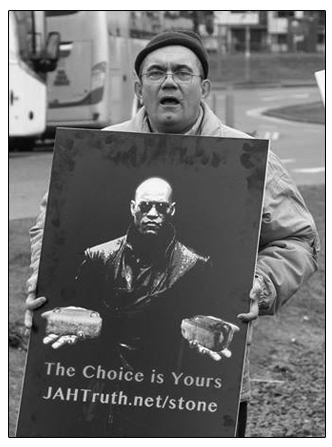 Although the UK Supreme Court ruled against the requests to appeal from two IndyCamp appellants on 26 May, it completely ignored the reason for their requests. Instead of addressing reasons clearly documented and submitted to the court in their applications, the court referred to past claims made by others who were not part of this latest appeal process.
Although the UK Supreme Court ruled against the requests to appeal from two IndyCamp appellants on 26 May, it completely ignored the reason for their requests. Instead of addressing reasons clearly documented and submitted to the court in their applications, the court referred to past claims made by others who were not part of this latest appeal process.
According to The Supreme Court’s website, the request was denied after review of the relevant written submissions. Permission was refused based on whether their rights to freedom of expression and freedom of assembly under Articles 10 and 11 of the European Convention on Human Rights entitled them to occupy permanently or indefinitely the campus of the Scottish Parliament.
But the appellants Richard McFarlane and Maureen MacLeod never submitted arguments based on any articles of the European Convention. Instead they argued that the Scottish Parliamentary Corporate Body is not a lawful entity; the Court had no jurisdiction to rule on the matter; and that Christ had given them permission to occupy the land until God’s Law is reestablished in Scotland. Their submissions referenced JAH’s Amicus Curiae Briefs/Statements of Truths based on God’s Law given in the Holy Bible. Under God’s Law, all judges must uphold it.
However, the UK Supreme Court judges ordered that permission to appeal be refused because the application “did not raise an arguable point of law”.
“They cannot argue against God’s Law,” said JAH, who wrote two Amicus Curiae Briefs/Statements of Truths, “instead they ignore it; and this has become their common practice.”
Elizabeth 2 swore to maintain The Laws of God at her coronation, and signed the Coronation Oath that she would do so. She has never done that, nor have those who swore an allegiance to her. These facts, as well as what McFarlane and MacLeod actually submitted can be read at the King of Scotland website at JAHTalk.thefarrellreport.net/king-of-scotland.
According to an article in The Journal, “both applicants, and others, had claimed that their rights to freedom of expression and freedom of assembly under articles 10 and 11 of the European Convention on Human Rights entitled them to occupy permanently or indefinitely the campus of the Scottish Parliament. This reporting is not factual, as the appellants split into four groups. It was four other individuals represented by lay representative Martin Keating who argued using the EU articles, not McFarlane and MacLeod. Those other individuals gave up the court fight for justice.

Please see the outlined area. “Does the appeal raise issues under the: Human Rights Act 1998? No is checked.
As shown in MacLeod’s submitted document, “No” was marked in reference to the Human Rights Act 1998 question: “Does the appeal raise issues under the: Human Rights Act 1998?”.

Richard McFarlane is featured here promoting the return of the Stone of Destiny to reinstate the true Jubilee, as reported in the Scotland Messenger. He is at the 2017 Scottish Conservative Party conference in Glasgow (Photo by Billy Knox Photography).
McFarlane said, “The court has consistently, at every stage, ignored our arguments. These three supreme court judges seem to be no exception, as they side with fraudulent legislation over The Law.” He said at first he questioned if it was a clerical error on their part, because their written decision bordered on incompetency.
The Law clearly states that no judge shall be a respecter of persons. For one, this means every man should be heard and treated equally. When the court system consistently sides with unlawful corporate entities, large companies, the rich, or inner circles, they defy God’s Law.
McFarlane and MacLeod will continue their campaign to be heard and their arguments addressed.
Related to this case are the arrests of Stephen Crielly and JAH. Crielly was arrested seven months ago and recently met with his appointed solicitor. The solicitor withdrew his representation of Crielly, who plans to use JAH’s Challenge Document, found on JforJustice.net, if taken to court. Crielly said that the solicitor admitted that he didn’t see much of a case as far as prosecution goes. JAH was arrested approximately four months ago. At his bail hearing, JAH said the prosecution intended to ask for a denial of bail; but the sheriff said that he was not sure if an offense had been committed. In both cases, the prosecution has 12 months to bring action against them.
Similarly related to the case was whether or not the court would pursue IndyCampers to pay court costs. The Scottish Parliament decided not to pursue independence campaigners who were evicted from a camp outside Holyrood for court costs.
This article adapted from the press release by The Stone of Destiny Group.
The shortlink to this article is http://wp.me/p2TF2i-K2


Thanks for your interest in the blog! All comments are read; however, few are posted. Many are personal messages that do not need publication. Have a good day.